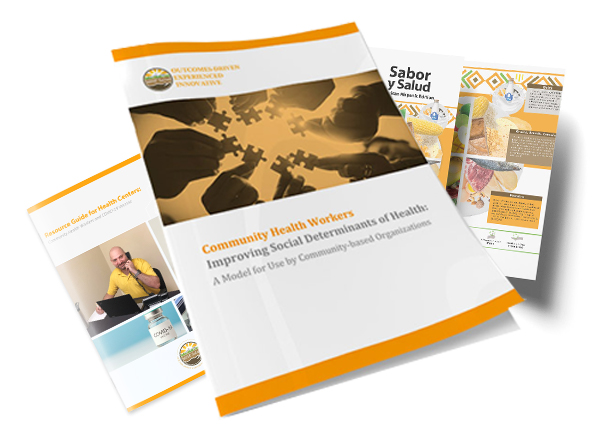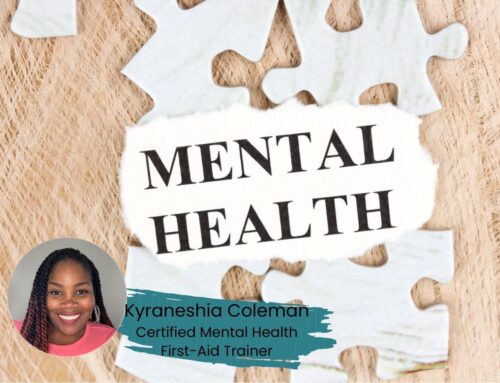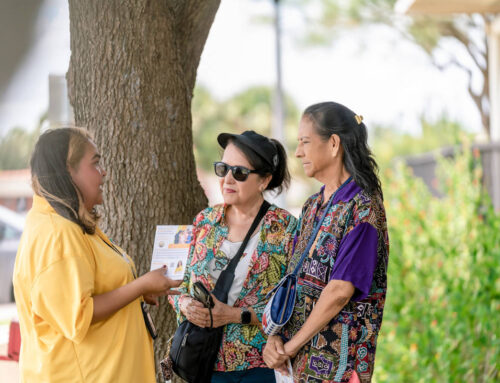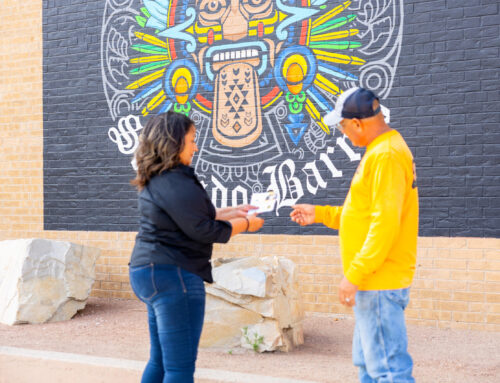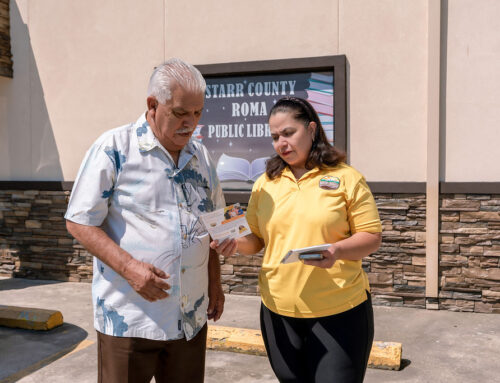Published March 2023 | Read this Article in Spanish
- Age-based biases, or ageism, in healthcare may lead to lower-quality healthcare for older adults.
- Ageism can lead to increased healthcare costs for older adults.
- Community Health Workers (CHWs) can help provide culturally appropriate strategies to provide care to older adults.
Ageism in Healthcare
Ageism is the act of discriminating and stereotyping against older adults. Many people don’t know that ageism in healthcare can lead to undertreating and overtreating health conditions. Undertreatment is when someone doesn’t get enough treatment for their condition, or their concerns aren’t taken seriously, while overtreatment is getting too much or too frequent treatment for their health condition. This happens when providers have an inaccurate perspective on aging.
One of the most significant issues that can lead to either undertreating or overtreating an older adult is poor communication. Good patient-provider communication is one of the many factors needed to prevent ageism in healthcare. For example, it is important for patients to clearly communicate their symptoms and not discount them as “normal aging.” It is equally essential for healthcare providers to take their time with their older adult patients, listen, and make them feel comfortable to share their concerns. As we dive deeper into this issue, we’ll focus on what steps to take to combat ageism in healthcare.
How does ageism in healthcare affect us as a whole?
Why does ageism in healthcare matter? Older adults are the fastest-growing age group in the US and form a large part of healthcare services consumers. Older adults may have unique presentations of conditions, and healthcare professionals must be attentive and aware of how to treat them best. Ageism in healthcare can cause many health problems for older adults, including:
- More emergency room visits
- More hospitalizations
- Inappropriate care
- Increased medical noncompliance
- Increased stress
As mentioned before, communication is key. It is crucial for older adults to feel comfortable with their providers. By being patient and taking some time to get to know their older adult patients, healthcare providers can help avoid many of the issues above.
Recognizing Ageist Stereotypes
How do you know if you are perpetuating ageist stereotypes in healthcare?
Ageist behaviors among healthcare professionals can happen on purpose, but they may also be subconscious. Some stereotypes that healthcare professionals may believe are that older adults are:
- Challenging to care for and work with
- Sick
- Frail
These stereotypes are very harmful and can negatively impact the care healthcare professionals provide to older adults by promoting a lack of engagement with older adult patients.
The financial impact of ageism in healthcare
Ageism can also have costly financial outcomes for patients and the healthcare system.
For example, for older adults with cardiovascular or heart disease, exposure to negative age stereotypes leads to more stress, which increases their risk of experiencing cardiovascular events like heart attacks and strokes. In turn, this increases the overall cost of treating cardiovascular conditions.
Healthcare costs related to ageism are calculated to be $63 billion per year. This means that one out of every seven dollars spent on the most expensive health conditions for Americans over 60 for one year is due to ageism! Ageism in healthcare does not only cost society money but, more importantly, can cost the well-being of older adults.
How do CHWs help combat ageism in healthcare?
Adults aged 65 or older are expected to reach 94.7 million by 2060, out of which 19.9 million (or about 20%) will be Hispanic/Latino. CHWs provide culturally appropriate care to their communities and, in doing so, can help address ageism and educate their healthcare team. CHWs are from the communities they serve and have a unique opportunity to provide the connection and support needed to bring light to the detrimental effects of ageism in healthcare within their community by:
- Identifying stereotypes or beliefs held by healthcare professionals in their communities.
- Empowering older adults by educating them about what ageism is, how to communicate more effectively, and how to advocate for themselves with their healthcare providers.
- Creating opportunities for healthcare providers to learn how to provide care that supports healthy aging among their community members.
MHP Salud offers innovative strategies through our training, consulting, and support services for CHW programs that can help improve health outcomes in your communities!
MHP Salud offers innovative strategies through our training, consulting, and support services
We can help you improve health outcomes in your communities! Our Technical Assistance team will support and strengthen your CHW program.
This project was supported by the Administration for Community Living (ACL), U.S. Department of Health and Human Services (HHS) as part of a financial assistance award totaling $213,112 with 75 percentage funded by ACL/HHS and $73,094 amount and 25 percentage funded by non-governmental source(s). The contents are those of the author(s) and do not necessarily represent the official views of, nor are an endorsement, by ACL/HHS, or the U.S. Government.
Blog Topics
This preventative care checklist will help older adults keep up to date with their recommended checkups and care services.
